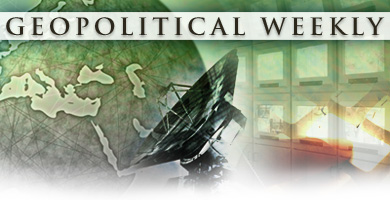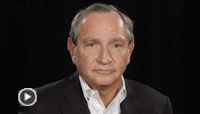The Hack on Stratfor
By George Friedman | January 11, 2012
In early December I received a call from Fred Burton, Stratfor's Vice President of Intelligence. He told me he had received information indicating our website had been hacked and our customer credit card and other information had been stolen. The following morning I met with an FBI special agent, who made clear that there was an ongoing investigation and asked for our cooperation. We, of course, agreed to cooperate. The matter remains under active investigation.
From the beginning I faced a dilemma. I felt bound to protect our customers, who quickly had to be informed about the compromise of their privacy. I also felt bound to protect the investigation. That immediate problem was solved when the FBI told us it had informed the various credit card companies and had provided those companies with a list of compromised cards while omitting that it had come from us. Our customers were therefore protected, as the credit card companies knew the credit cards and other information had been stolen and could act to protect the customers. We were not compelled to undermine the investigation.
The FBI made it clear that it expected the theft to be exposed by the hackers. We were under no illusion that this was going to be kept secret. We knew our reputation would be damaged by the revelation, all the more so because we had not encrypted the credit card files. This was a failure on our part. As the founder and CEO of Stratfor, I take responsibility for this failure, which has created hardship for customers and friends, and I deeply regret that it took place. The failure originated in the rapid growth of the company. As it grew, the management team and administrative processes didn't grow with it. Again, I regret that this occurred and want to assure everyone that Stratfor is taking aggressive steps to deal with the problem and ensure that it doesn't happen again.
From the beginning, it was not clear who the attackers were. The term "Anonymous" is the same as the term "unknown." The popular vision of Anonymous is that its members are young and committed to an ideology. I have no idea if this is true. As in most affairs like this, those who know don't talk; those who talk don't know. I have my theories, which are just that and aren't worth sharing.
I was prepared for the revelation of the theft and the inevitable criticism and negative publicity. We worked to improve our security infrastructure within the confines of time and the desire to protect the investigation by not letting the attackers know that we knew of their intrusion. With the credit card information stolen, I assumed that the worst was done. I was wrong.
Early in the afternoon of Dec. 24, I was informed that our website had been hacked again. The hackers published a triumphant note on our homepage saying that credit card information had been stolen, that a large amount of email had been taken, and that four of our servers had been effectively destroyed along with data and backups. We had expected they would announce the credit card theft. We were dismayed that emails had been taken. But our shock was at the destruction of our servers. This attack was clearly designed to silence us by destroying our records and the website, unlike most attacks by such groups.
Attacks against credit cards are common, our own failures notwithstanding. So are the thefts of emails. But the deliberate attack on our digital existence was a different order of magnitude. As the global media marveled at our failure to encrypt credit card information, my attention was focused on trying to understand why anyone would want to try to silence us.
In the days that followed, a narrative evolved among people claiming to speak for Anonymous and related groups. It started with looking at our subscriber list and extracting corporate subscribers who were now designated as clients. The difference between clients and subscribers is important here. A client is someone you do customized work for. A subscriber is simply someone who purchases a publication, unchanged from what others read. A subscriber of The New York Times is not its client. Nevertheless, some of the media started referring to these subscribers as clients, reflecting the narrative of those claiming to speak with knowledge of our business.
From there, the storyline grew to argue that these "clients," corporate and government, provided Stratfor with classified intelligence that we reviewed. We were no longer an organization that analyzed the world for the interested public, but rather a group of incompetents and, conversely, the hub of a global conspiracy. The media focused on the first while the hacking community focused on the second.
This was why they stole our email, according to some of them. As one person said, the credit cards were extra, something they took when they realized they could. It was our email they were after. Obviously, we were not happy to see our emails taken. God knows what a hundred employees writing endless emails might say that is embarrassing, stupid or subject to misinterpretation. What will not appear is classified intelligence from corporations or governments. They may find, depending on what they took, that we have sources around the world, as you might expect. It is interesting that the hacker community is split, with someone claiming to speak for the official Anonymous condemning the hack as an attack on the media, which they don't sanction, and another faction defending it as an attack on the rich and powerful.
The interpretation of the hackers as to who we are -- if indeed that was their interpretation -- was so wildly off base as to stretch credulity. Of course, we know who we are. As they search our emails for signs of a vast conspiracy, they will be disappointed. Of course we have relationships with people in the U.S. and other governments and obviously we know people in corporations, and that will be discovered in the emails. But that's our job. We are what we said we were: an organization that generates its revenues through geopolitical analysis. At the core of our business, we objectively acquire, organize, analyze and distribute information.
I don't know if the hackers who did this feel remorse as they discover that we aren't who they said we were. First, I don't know who they actually are, and second, I don't know what their motives were. I know only what people claiming to be them say. So I don't know if there is remorse or if their real purpose was to humiliate and silence us, in which case I don't know why they wanted that.
And this points to the real problem, the one that goes beyond Stratfor's own problem. The Internet has become an indispensible part of our lives. We shop, communicate, publish and read on it. It has become the village commons of the planet. But in the village commons of old, neighbors who knew and recognized each other met and lived together. Others knew what they did in the commons, and they were accountable.
In the global commons, anonymity is an option. This is one of the great virtues of the Internet. It is also a terrible weakness. It is possible to commit crimes on the Internet anonymously. The technology that enables the Internet also undermines accountability. Given the profusion of technical knowledge, the integrity of the commons is in the hands of people whose identities we don't know, whose motives we don't understand, and whose ability to cause harm is substantial. The consequence of this will not be a glorious anarchy in the spirit of Guy Fawkes, but rather a massive repression. I think this is a pity. That's why I wonder who the hackers actually are and what cause they serve. I am curious as to whether they realize the whirlwind they are sowing, and whether they, in fact, are trying to generate the repression they say they oppose.
The attempt to silence us failed. Our website is back, though we are waiting for all archives to be restored, and our email is working again. Our failures have been reviewed and are being rectified. We deliberately shut down while we brought in outside consultants to rebuild our system from the ground up. The work isn't finished yet, but we can start delivering our analyses. The handling of credit cards is being handed off to a third party with appropriate capability to protect privacy. We have acted to help our customers by providing an identity theft prevention service. As always, we welcome feedback from our supporters as well as our critics.
We are fortunate that we have the financial resources and staff commitment to survive the attack. Others might not. We are now in a world in which anonymous judges, jurors and executioners can silence whom they want. Take a look at the list of organizations attacked. If the crushing attack on Stratfor is the new model, we will not be the last. No security system is without flaws even if it is much better than Stratfor's was.
We certainly expect to be attacked again, as we were last week when emails were sent out to members from a fake Stratfor address including absurd messages and videos. Our attackers seem peculiarly intent on doing us harm beyond what they have already done. This is a new censorship that doesn't come openly from governments but from people hiding behind masks. Do not think we will be the last or that we have been the first.
We will continue to publish analysis and sell it to those who believe it has value. To our subscribers who have expressed such strong support, we express our deepest gratitude. To our critics, we assure you that nothing you have said about us represents a fraction of what we have said about ourselves. While there is much not to be proud of in this affair, I am proud beyond words of all my dedicated colleagues at Stratfor and am delighted to return our focus to analyzing critical international affairs.
To all, I dedicate myself to denying our attackers the prize they wanted. We are returning to the work we love, dedicated to correcting our mistakes and becoming better than ever in analyzing and forecasting how the world works.
Visit Stratfor.com for more content »
Comments? Send them to feedback@stratfor.com
|






